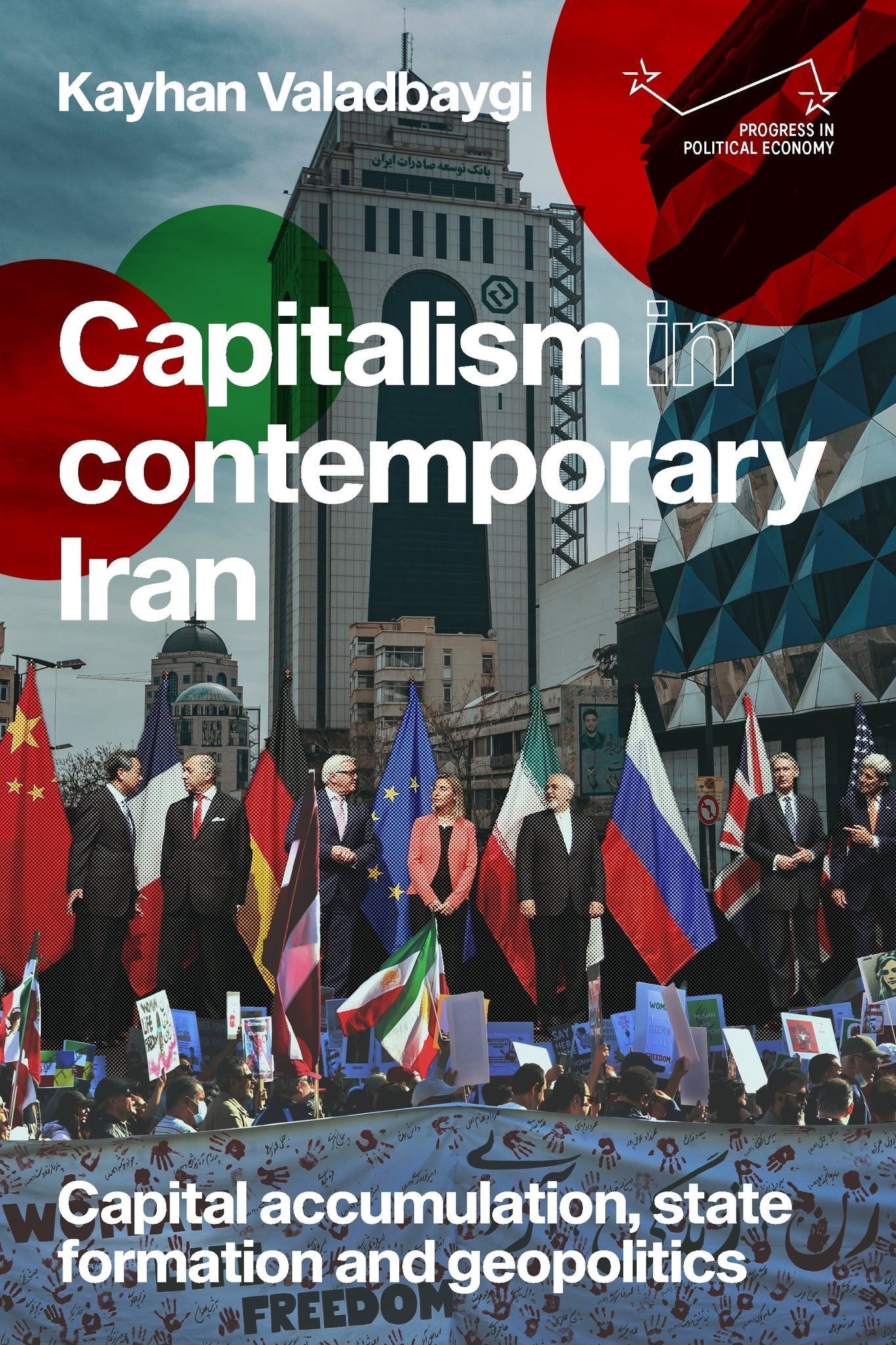We're sorry. An error has occurred
Please cancel or retry.
Capitalism in contemporary Iran


HISTORY / Middle East / Iran, Political economy, POLITICAL SCIENCE / Political Economy, POLITICAL SCIENCE / Political Ideologies / Capitalism, POLITICAL SCIENCE / International Relations / General, International relations

'Kayhan Valadbaygi’s account of capitalist development and neoliberalisation in Iran pushes back against narratives that seek to explain the socioeconomic transformations in Iran with a sole focus on internal dynamics and essentialist arguments about the state’s ‘rentier’ characteristics and Islamist ideology. Capitalism in Contemporary Iran also challenges standardised models for which capitalist forms are externally imposed; either determined in the West and subsequently effecting the rest or approached as an abstraction above local particularities. Valadbaygi follows the interactions of social, factional, national, regional, and global forces to offer a dynamic account of the historical trajectory of capitalist relations in Iran. The methodological emphasis on relationality enables the book to reject the binary between internal and external factors, and to move beyond static comparisons of the so-called Global North and South.'
The Journal of Development Studies
'This is a powerful and highly original account of Iran’s political economy. Unlike so much analysis and commentary on Iran, Valadbaygi carefully situates processes of domestic class formation and the country’s deep social antagonisms within the development of the wider capitalist world market. This deeply insightful re-telling of Iran’s history - stretching from the 1979 revolution through to the recent ‘Women, Life, Freedom’ revolts - is a must-read for understanding Iran’s place in the current global order, as well as the country’s ongoing and fractious political struggles.'
Adam Hanieh, University of Exeter
'Capitalism in contemporary Iran provides an original account of the modern Iran that rethinks its complex development and revolutionary ruptures through the wider dynamics of global capitalism and its geopolitical sinews. The first book-length application of the philosophy of internal relations to capitalist development in Iran, Capitalism in contemporary Iran synthesises the global and the local to rethink Iran beyond exceptionalism and culturalism through the intersection of social classes, the state, and global capitalism. Capitalism in contemporary Iran is a must read for academics, students and political practitioners alike.'
Kamran Matin, University of Sussex
'With Capitalism in Contemporary Iran Kayhan Valadbaygi delivers the most influential single book on the making of contemporary Iran and therefore the most valuable in helping us to understand the geopolitics of our times.'
Adam David Morton (University of Sydney), co-author with Andreas Bieler of Global Capitalism, Global War, Global Crisis.
'This book successfully situates Iran in the global history and historical sociology of capitalism. A must-read for anyone interested in Iran.'
Ayse Zarakol, University of Cambridge
'Valadbaygi’s work builds on an impressive range of sources that make the book essential reading for scholars researching Iran. Its theoretical framework can also inform studies of political economy in other states with comparable positions in international hierarchies. The book offers a strong critique of dominant discussions within Iranian studies.'
Maziar Samiee, University of Sussex
'Incredibly valuable…Valadbaygi’s analysis is theoretically solid and academically grounded. The book relies on an extensive set of primary sources in Persian and English, spanning from institutional and independent databases and archives, newspapers and periodical reports, documents from various Iranian ministries and international organizations as well as official documents produced by the European Union and the United States. These materials are combined with a rich and extensive list of secondary sources that show special attention to the intellectual debates and knowledge produced not only for an English-speaking audience.'
Stella Morgana, University of Liverpool
1 Framing Iran: A historical materialist approach
2 Modern Iran from Pax Britannica to Pax Americana: The emergence and consolidation of capitalism
3 1979 revolution and war with Iraq: The expansion of state capitalism
4 Neoliberalisation and the ruling class reconfiguration (1989–2013)
5 Neoliberalisation and the institutional and ideological reconstitution of the state
6 Class struggles in neoliberal Iran: From workers' resistance in the 1990s to the post-2017 uprisings
7 Neoliberalism and geopolitics: The Iranian nuclear programme, international sanctions and regional policy
8 Conclusion: Future paths under the crisis of neoliberalism, the changing global order and revolts from below
Index




